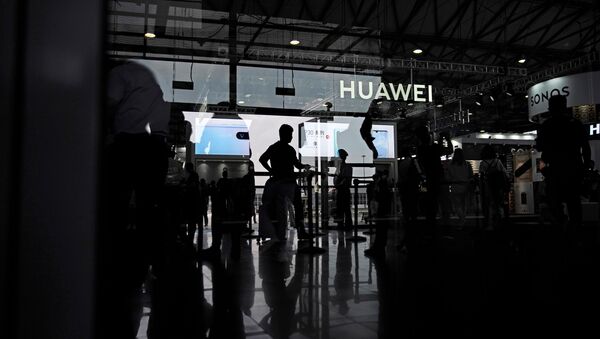Huawei workers have teamed with members of various organs of the People’s Liberation Army on at least 10 research endeavours spanning artificial intelligence to radio communications over the past decade, Bloomberg reported on Wednesday. The projects included efforts with the investigative branch of the Central Military Commission to extract and classify emotions in online video comments, and an initiative with the National University of Defense Technology to explore ways of collecting and analyzing satellite images and geographical coordinates.
“Huawei is not aware of its employees publishing research papers in their individual capacity,” spokesman Glenn Schloss said in a statement to Bloomberg. “Huawei does not have any R&D collaboration or partnerships with the PLA-affiliated institutions,” he said. “Huawei only develops and produces communications products that conform to civil standards worldwide, and does not customize R&D products for the military.”
The projects were mentioned in publicly disclosed studies, revealed by Bloomberg from published periodicals and online research databases used mainly by Chinese academics and industry specialists. The authors of the studies identified themselves as Huawei employees and the company name was reportedly listed at the top of the papers.
One of the online sentiment classification studies, which lists Shanghai-based Huawei employee Li Hui as its lead author, focused on video and improving the accuracy of natural language processing algorithms. According to Bloomberg, the project was funded by the National 242 Information Security Project, a program created by Beijing to support IT security research efforts.
Other studies included a 2006 paper on America’s combat network radio efficiency, authored by Zheng Chuangming, from the Shenzhen Huawei Base, and the study of the genesis and outlook of the geographical information system, used to collate and parse location data, authored by Huawei employee Li Jie and two military researchers, one of whom was from the National University of Defence Technology.
However, Wong Kam Fai, a Chinese University of Hong Kong professor, told Bloomberg that it’s common for universities in China and Chinese companies to collaborate on scientific projects, and that researchers sometimes put their employer’s name on papers without notifying the company, or wait till the paper comes out before doing so as there’s a good chance some papers may never get published.
Wong also outlined that different projects have different sensitivity levels and sometimes the government will own the IP and classify the research as sensitive, even if there are no “cutting edge” processes.
“In the US they have similar arrangements as well. The US has military grants,” Wong said. “There are many sources of funding, including from the military for research.”
Huawei was blacklisted last month as it was added to the United States' "entity list", while Trump also signed an executive order essentially banning the company on national security grounds, claiming that Huawei has close ties with the Chinese government.
US intelligence agencies had previously accused Huawei of putting “backdoor” access in its devices to allegedly enable the Chinese government to spy on users. Beijing and Huawei have both denied the allegations.




